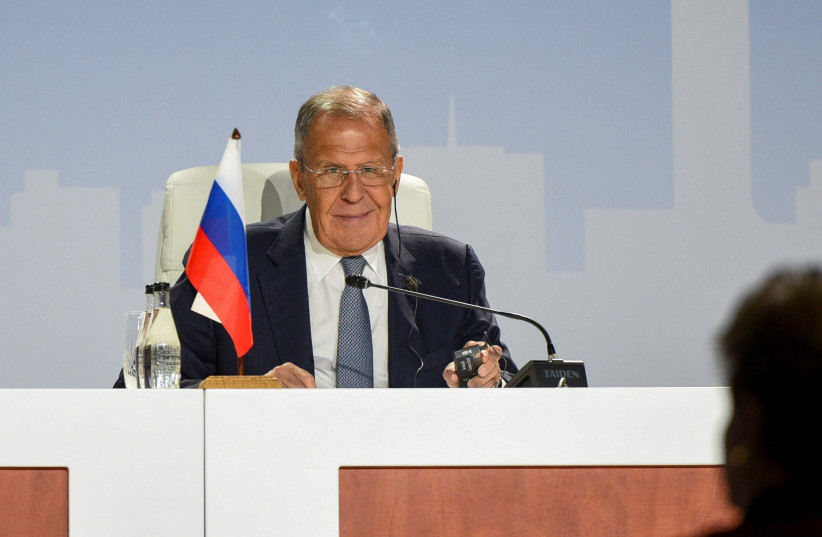BRICS swings big with invitation of Middle East countries – analysis
The BRICS economic group which includes many large countries such as China and India, is seeking to expand into the Middle East by inviting the UAE, Egypt, Iran, and Saudi Arabia to join. This is a major outcome of the recent BRICS meeting in South Africa where the current members; Brazil, Russia, India, China and South Africa met.
BRICS is important because it’s a non-western economic grouping. In a world where Russia and China are increasingly at odds with the West, any meetings where Russia and China are present with a series of other countries has potential to undermine the West and the US-led world order which was established at the end of the Cold War.
Many countries such as Iran have been seeking to play a larger role in work with Russia and China in recent years; and also in outreach to India. Iran, for instance, seeks to play a role in the SCO and CICA, other groups of countries that include China or Central Asian states. Iran joined the SCO this year.
More countries see BRICS as a rising force
BRICS began by including major large countries from various continents, such as Brazil from the Americas and South Africa from Africa. India dominates South Asia and China and Russia are obvious members as well. However, the new drive by almost two dozen countries to join shows how they sense that BRICS is a rising group and they want to pursue an independent policy away from the West, or at least in complementary fashion to the Western dominated world order. The West, for instance, dominates groups like the G7.
 Russia’s Foreign Minister Sergei Lavrov attends a press conference as the BRICS Summit is held in Johannesburg, South Africa August 24, 2023. (credit: Alet Pretorius/Reuters)
Russia’s Foreign Minister Sergei Lavrov attends a press conference as the BRICS Summit is held in Johannesburg, South Africa August 24, 2023. (credit: Alet Pretorius/Reuters)Now BRICS has decided to invite Iran, Saudi Arabia, the UAE, Argentina, Egypt, and Ethiopia to join. Clearly there is a bias here towards Middle East countries. The UAE and Egypt are important in terms of Israel’s role because they have peace with Israel. Saudi Arabia is a leader in the region and also important in the Gulf and globally. The decision to invite Argentina and Ethiopia creates new opportunities for BRICS in Africa and South America. But the real story here is the growth in influence in Middle East states. Saudi Arabia, for instance has hosted recent meetings with China. Riyadh also recently hosted Iran’s foreign minister and China has supported Iran in recent conversations with Iran’s foreign minister as well.
Saudi Arabia and the UAE are close partners of the West. Iran is openly a destabilizing force in the Middle East and has worked to become closer to China and Russia. Iran exports armed drones to Russia and seeks to build on a new 25-year deal with China. As such the Iranian membership of BRICS and other groups with China and Russia can lead to coordination between these states and this has major ramifications for the future world order. As these countries grow closer Iran’s defense industries could be boosted, for instance. This is important as Iran seeks to develop its missile and drone programs and export more weapons. Iran unveiled a new long range armed drone, the Mohajer 10, this week, for instance.
What happens next as Saudi, Iran, and others join BRICS is something that time will tell. This is an important economic group and the way it and groups like the SCO are doing outreach will shift global economic priorities and potentially create a balance in terms of how the West has dominated the world order. China and Russia would like to unseat the West and challenge the US. Countries like India are partners of the West but, like Saudi Arabia, they have their own independent policies and want to play a role in various forums.
Now more countries that are clearly partners of the West, such as the UAE and Saudi Arabia and Egypt, will be playing a larger role at BRICS. This will change the Middle East and clearly put the region on the map. BRICS is swinging big with its decision to invite so many Middle East countries to join. This also shows that analysts who believed the Middle East would be less important in the future and that the US should shift focus to Russia or China, are ignoring how important the Middle East is to China, Russia, India, and others.
The Middle East has become more important in recent years, not less important, and BRICS acknowledges this; while some western countries have apparently missed the boat in seeing the region as one that is declining in importance.





Comments are closed.